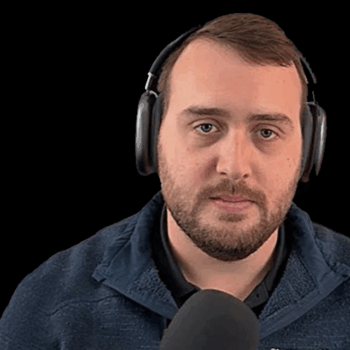The COVID-19 pandemic has not only impacted physical health but has also taken a toll on mental well-being. In this article, we delve into an insightful interview with Dr. Gary Sidley, a retired consultant psychologist from the UK, who provides a comprehensive analysis of the use of behavioral nudge techniques during the pandemic. Dr. Sidley highlights the collateral damage caused by COVID-19 restrictions and raises concerns about the ethical implications of employing nudges. This article aims to shed light on the importance of transparency, and informed consent, and review the government’s use of behavioral science on its people.
Table of contents
- Background and Skepticism
- Fear, Misinformation, and Manipulation
- Challenging the Mainstream Narrative
- Collateral Damage and Nudges
- UK Government’s Use of Nudges
- High Levels of Anxiety and Fear
- Unintended Consequences of Nudges
- Ethical Considerations
- Reviewing the Government’s Use of Nudges
- Reluctance to Engage in Debate
- Conclusion
- FAQs
- Related Articles:
Background and Skepticism
Dr. Gary Sidley, drawing upon his background in mental health services and risk assessment, expresses his early recognition that the government’s preventive measures during the pandemic would not be effective. Based on his experience in the NHS and research, Dr. Sidley explains his skepticism and highlights the challenges of predicting and assessing risk in mental health services.
Fear, Misinformation, and Manipulation
Dr. Sidley discusses how fear, misinformation, and corruption can make individuals more susceptible to manipulation and nudges during a pandemic. He questions the motives of big pharma and political classes, emphasizing the need to keep risks in perspective. While acknowledging the potential utility of vaccines and antibiotics, he raises concerns about the symbiotic relationship between these industries and the public’s best interest.
Challenging the Mainstream Narrative
The interview covers Dr. Sidley’s involvement with organizations such as the Health Advisory and Recovery Team (HEART) and Smile Free, which challenge mandates like mask-wearing in healthcare settings. He highlights the prevalence of misinformation and propaganda and expresses his concerns regarding the lack of opportunity to challenge the mainstream narrative in democratic societies.
Collateral Damage and Nudges
The conversation turns to the collateral damage caused by COVID-19 restrictions, including the neglect of cancer patients, increased opiate deaths, and the psychological impact of prolonged school closures. Dr. Sidley introduces the concept of “nudges,” psychological techniques that operate below individuals’ conscious awareness, and provides examples of nudges employed during the pandemic, such as emotive advertising and social proof.
UK Government’s Use of Nudges
Dr. Sidley discusses how the UK government utilized behavioral science-based nudges to promote compliance with COVID-19 regulations. He highlights the use of emotional messaging, authority figures, and even shame and vilification to encourage adherence. However, he expresses concern over the ethical implications of such tactics and emphasizes the need for informed consent, transparency, and clear goals.
High Levels of Anxiety and Fear
Dr. Sidley addresses the high levels of anxiety and fear experienced by individuals during the pandemic. He shares his experiences engaging with people wearing masks in public, questioning the effectiveness and long-term plans for mask-wearing. Dr. Sidley suggests that masks were initially promoted to enforce normative pressure rather than being solely driven by scientific evidence.
Unintended Consequences of Nudges
The interview reveals the unintended consequences of behavioral science and nudges during the pandemic. Dr. Sidley recounts stories of people avoiding hospitals, the detrimental effects of loneliness on the elderly, and the impact of prolonged school closures on children’s education. He argues that these unintended consequences must be considered when deploying nudges and highlights the importance of a transparent debate.
Ethical Considerations
Dr. Sidley raises ethical concerns about the use of nudges during the pandemic. He advocates for transparency, informed consent, and goal alignment before implementing nudges. He suggests that a transparent debate could lead to agreements on the use of nudges without individuals being manipulated without their knowledge. Dr. Sidley also expresses concerns about the cost of the pandemic and the usage of stimulus money.
Reviewing the Government’s Use of Nudges
Dr. Sidley expresses concerns about the UK government’s use of behavioral nudge techniques during the pandemic. He calls for a transparent review of how these techniques are employed on the population. The interview highlights Dr. Sidley’s frustration with the government’s reluctance to engage in this debate, including the dismissive response from the British Psychological Society.
Reluctance to Engage in Debate
The interview concludes with Dr. Sidley discussing the reluctance of the government and other organizations to engage in a transparent debate. He criticizes the British Psychological Society for disregarding concerns and claims that their psychologists are behaving in a socially responsible way. Dr. Sidley cautions against relying on those in power to define the “greater good” and emphasizes the importance of ongoing critical analysis.
Conclusion
In this thought-provoking interview, Dr. Gary Sidley provides a nuanced analysis of behavioral science “nudges” during the pandemic. He highlights the collateral damage caused by COVID-19 restrictions, expresses ethical concerns about the use of nudges, and calls for transparency and informed consent. Dr. Sidley emphasizes the need for a transparent review of the government’s utilization of behavioral science techniques and encourages individuals to engage in critical thinking to protect their basic rights.
FAQs
A behavioral nudge is a psychological technique of persuasion that operates on individuals below their conscious awareness. Nudges aim to influence behavior by tapping into human tendencies and biases, guiding individuals toward certain choices or actions.
The UK government utilized various behavioral nudge techniques during the pandemic to encourage compliance with COVID-19 regulations. These techniques included emotional messaging, authority figures, and even shame and vilification tactics to promote adherence to safety measures.
Unintended consequences of nudges during the pandemic include individuals avoiding necessary medical care, increased loneliness and its impact on the elderly, and disruptions to children’s education due to prolonged school closures. These unintended consequences highlight the need to carefully consider the potential negative impacts of nudges.
Transparency is crucial when using nudges because it ensures that individuals are aware of the techniques being employed to influence their behavior. It allows for informed consent and enables individuals to make decisions based on complete information, promoting the ethical use of nudges.
To protect their basic rights during the pandemic, individuals can stay informed, critically analyze information, and actively engage in discussions and debates surrounding government policies and behavioral nudge techniques. By advocating for transparency, informed consent, and ethical considerations, individuals can play an active role in safeguarding their rights.
Related Articles:
Discover more from Randy Bock MD PC
Subscribe to get the latest posts sent to your email.
























